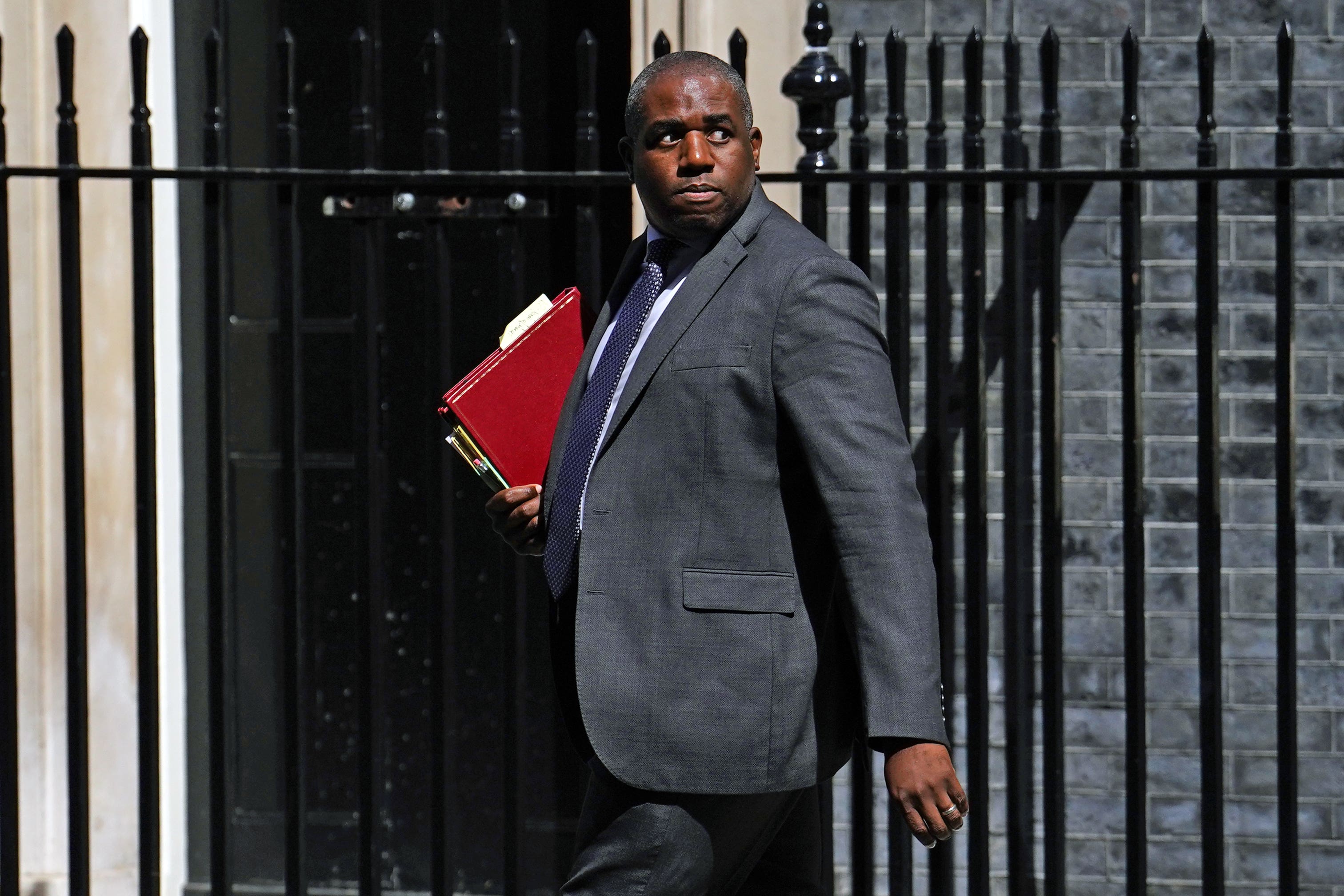Military sent to help embassies as Lammy tells UK citizens ‘leave Lebanon now’
Border Force has also sent officers who stand ready to aid consular operations, the Foreign Office said.

Military personnel and consular experts have been deployed to the Middle East to help British nationals in the region as ministers warned the “situation could deteriorate rapidly”.
Foreign Secretary David Lammy on Saturday repeated calls for UK citizens in Lebanon to “leave now” amid heightened tensions between Israel and Hezbollah.
Armed forces personnel are heading to the region to provide embassies with operational support to help British nationals and Border Force has sent officers who stand ready to aid consular operations, the Foreign Office said.
Meanwhile, consular experts have been drafted in to assist with planning and responding to queries from UK citizens.
This is alongside the Royal Air Force having put transport helicopters on stand-by and landing ship RFA Cardigan Bay and HMS Duncan already being in the Mediterranean to help allies with humanitarian efforts.
A widening of this conflict is in nobody's interest – the consequences could be catastrophic. That’s (why) we continue to call for de-escalation and a diplomatic solution
Mr Lammy said: “Tensions are high and the situation could deteriorate rapidly. While we are working round the clock to strengthen our consular presence in Lebanon, my message to British nationals there is clear – leave now.
“A widening of this conflict is in nobody’s interest – the consequences could be catastrophic. That’s (why) we continue to call for de-escalation and a diplomatic solution.”
The Government is preparing for “a range of possible conflict scenarios”, the Foreign Office said.
Defence Secretary John Healey said: “Our armed forces will always step up to support British citizens around the world and reinforce regional stability with their professionalism and bravery.
“As I told leaders in the Middle East this week, de-escalation must be the primary focus in the region and we are urging all to dial down tensions. There must be an end to the fighting, an immediate ceasefire in Gaza, the release of all hostages and a diplomatic path to peace and security.”
The appeal follows visits by Mr Healey and Mr Lammy to Qatar and Lebanon earlier this week, with the two men urging a ceasefire, the release of hostages and an increase in aid to Palestine.
The ministers’ tour comes in the wake of the death of Hamas political leader Ismail Haniyeh, who was killed in an air strike on the Iranian capital Tehran that has been attributed to Israel.
Tensions have also increased on Israel’s northern border with Lebanon after 12 children and teenagers were killed by a Hezbollah rocket attack in the Golan Heights.
That was followed by an Israeli air strike on a suburb of Lebanese capital Beirut, which Tel Aviv said was targeting the Hezbollah commander responsible.